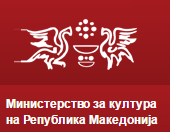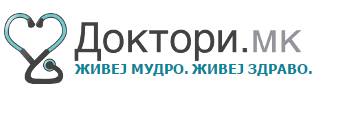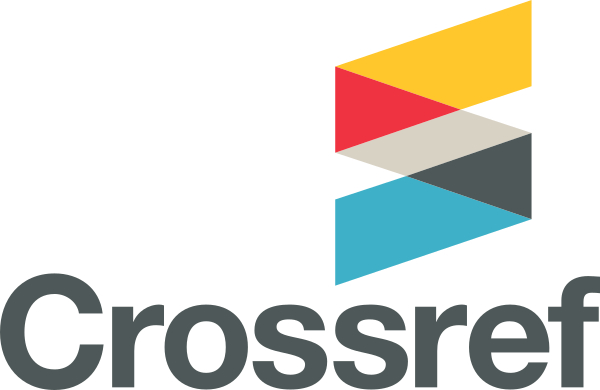JSER Policies
JSER Online
JSER Data
Frequency: quarterly
ISSN: 1409-6099 (Print)
ISSN: 1857-663X (Online)
Authors Info
- Read: 22901
| КАРАКТЕРИСТИКИ ВО РАЗВОЈОТ НА МОТОРИКАТА, КОМУНИКАЦИЈАТА, СОЦИЈАЛИЗАЦИЈАТА И САМОПОСЛУЖУВАЊЕТО КАЈ ДЕЦА СО УМЕРЕНИ ПРЕЧКИ ВО ПСИХИЧКИОТ РАЗВОЈ
Анета СТЕФАНОВСКА
Заводот за рехабилитација на деца и младинци-Скопје |
| CHARACTERISTICS IN MOTOR DEVELOPMENT, COMMUNICATION, SOCIALIZATION AND SELF-SERVICE IN CHILDREN WITH PSYCHIC DEVELOPMENTAL DISABILITIES
Aneta STEFANOVSKA
Institute for Rehabilitation of Children and Youth-Skopje |
|
|
|
|
| Анета Стефановска го одбрани својот магистерски труд на 18.10.2006 година на Институтот за дефектологија при Филозофскиот факултет Универзитет „Св. Кирил и Методиј“-Скопје пред комисијата во состав: проф. д-р Ристо Петров, проф. д-р Драгослав Копачев и проф. д-р Горан Ајдински. |
| Aneta Stefanovska defended her master thesis on October 18th, 2006 at the Institute for Special Education and Rehabilitation at the Faculty of Philosophy, University “Ss Cyril and Methodius”-Skopje before the commission cosisted of: Prof. Dr. Risto Petrov, Prof. Dr. Dragoslav Kopachev and Prof. Dr. Goran Ajdinski. |
|
|
|
|
| Резиме |
| Abstract |
| Магистерскиот труд е презентиран на 153 страници, со вовед, теоретски дел, истражувачки дел, анализа и интерпретација на резултатите, заклучни сознанија со предлог-мерки, литература и прилози. Резултатите од истражувањето ги презентира со 37 табели и графикони. Во воведот ја поставува задачата на своето истражување т.е. можностите и карактеристиките во развојот на моториката, комуникацијата, социјализацијата и самопослужувањето кај деца со умерени пречки во психичкиот развој, независно дали се опфатени во стационарна институција (една група испитаници) или во посебни основни училишта (друга група испитаници). Во теоретскиот дел е разработена умерената ментална ретардација со дефиниција, етиологија, класификација и развој на моториката, комуникацијата, социјализацијата и самопослужувањето. |
| Her master thesis is presented on 153 pages, with an introduction, a theoretical part, a research part, an analysis and an interpretation of the results, conclusions with proposed measures, literature and supplements. The results of the research are presented with 37 tables and graphs. She states the task of her research in the introduction, i.e. possibilities and characteristics in the motor development, communication, socialization and self-service in children with moderate psychic developmental disabilities, regardless of whether they are included in a stationary institution (one group of examinees) or in the special primary schools (the other group of examinees). The third part deals with the moderate mental retardation with definition, etiology, classification and the motor development, communication, socialization and self-service. |
| Во истражувачкиот дел се дефинирани предметот, целите, задачите, хипотезите, варијаблите, методите, техниките и инструментите. Дава анализа на примерок од две групи испитаници и резултатите ги компарира. Во анализа и интерпретација на резултатите, во првите четири точки се зборува за процената на развиеноста на моториката, комуникацијата, социјализацијата и самопослужувањето кај децата. Во петтата точка утврдува корелација меѓу: · моторика и социјализација; · моторика и комуникација; · моторика и самопослужување; · социјализација и комуникација; · социјализација и самопослужување; · комуникација и самопослужување. Податоците укажуваат дека воспитно-образовниот процес независно каде се реализира доведува до развој на децата. Децата со умерени пречки во психичкиот развој покажуваат ниско ниво на развиеност во областите опфатени со ова истражување, во споредба со развојните норми што се општо прифатени. Таквите деца независно од возраста и степенот на когнитивно функционирање имаат дисхармоничен моторен развој. Овие резултати може да се подигнат на повисоко ниво со систематска, мултимодална, сеопфатна и интензивна програма прилагодена кон секое дете. Предлог мерките се: · координираност меѓу стручните лица кои учествуваат во третманот на децата; · рано откривање и оцена на специфичните потреби; · следење на третманот и резултатите од третманот; · работа со семејствата; · следење и примена на нови практични и теоретски искуства; · перманентно иновирање на програмата за работа со овие деца. |
| The research part defines the subject, aims, tasks, hypotheses, variables, methods, techniques and instruments. The analysis of the pattern is given, explaining that two groups of examinees are observed and the results are compared. The first four items in the analysis and interpretation part state the assessment of the motor development, communication, socialization and self-service in children with moderate psychic developmental disabilities. The fifth item presents the correlation between the four examined areas and states a correlation between them: · motor and socialization; · motor and communication; · motor and self-service; · socialization and communication; · socialization and self-service; · communication and self-service. The obtained data of this research indicate that upbringing and education process regardless of where it is realized leads to children’s development. The children with moderate psychic developmental disabilities show a low level of development in the areas covered with this research, compared to the developmental norms that are generally accepted. The children with moderate psychic developmental disabilities regardless of the age and the level of cognitive functioning have disharmonized motor development. These results can be elevated to a higher level with applying a systematic, multi-modeled, comprehensive, and intensive program adapted to any child according to his/her possibilities and abilities. She directs to the proposed measures: · coordination between the professionals who participate in the children’s treatment; · early detection and assessment of the special needs; · following up the treatment and the results of the treatment; · working with the families; · following up and applying new practical and theoretical experiences; · permanent innovation of the program for working with these children. |
| Адреса за сепаратите: |
| Address requests for reprint to: |
| Анета СТЕФАНОВСКА |
| Aneta STEFANOVSKA |
| Заводот за рехабилитација на деца и младинци-Скопје II Македонска бригада бб 1000 Скопје, Република Македонија e-mail: nsd_ane@yahoo.com |
| Institute for Rehabilitation of Children and Youth-Skopje 1000 Skopje, Republic of Macedonia e-mail: nsd_ane@yahoo.com |
Share Us
Journal metrics
-
 SNIP 0.059
SNIP 0.059 -
 IPP 0.07
IPP 0.07 -
 SJR 0.13
SJR 0.13 -
 h5-index 7
h5-index 7 -
 Google-based impact factor: 0.68
Google-based impact factor: 0.68
Related Articles
10 Most Read Articles
- PARENTAL ACCEPTANCE / REJECTION AND EMOTIONAL INTELLIGENCE AMONG ADOLESCENTS WITH AND WITHOUT DELINQUENT BEHAVIOR
- RELATIONSHIP BETWEEN LIFE BUILDING SKILLS AND SOCIAL ADJUSTMENT OF STUDENTS WITH HEARING IMPAIRMENT: IMPLICATIONS FOR COUNSELING
- EXPERIENCES FROM THE EDUCATIONAL SYSTEM – NARRATIVES OF PARENTS WITH CHILDREN WITH DISABILITIES IN CROATIA
- INOVATIONS IN THERAPY OF AUTISM
- AUTISM AND TUBEROUS SCLEROSIS
- THE DURATION AND PHASES OF QUALITATIVE RESEARCH
- REHABILITATION OF PERSONS WITH CEREBRAL PALSY
- DISORDERED ATTENTION AS NEUROPSYCHOLOGICAL COGNITIVE DISFUNCTION
- HYPERACTIVE CHILD`S DISTURBED ATTENTION AS THE MOST COMMON CAUSE FOR LIGHT FORMS OF MENTAL DEFICIENCY
- DIAGNOSTIC AND TREATMENT OPTIONS IN AUTISTIC SPECTRUM DISORDERS – AN OVERVIEW
















